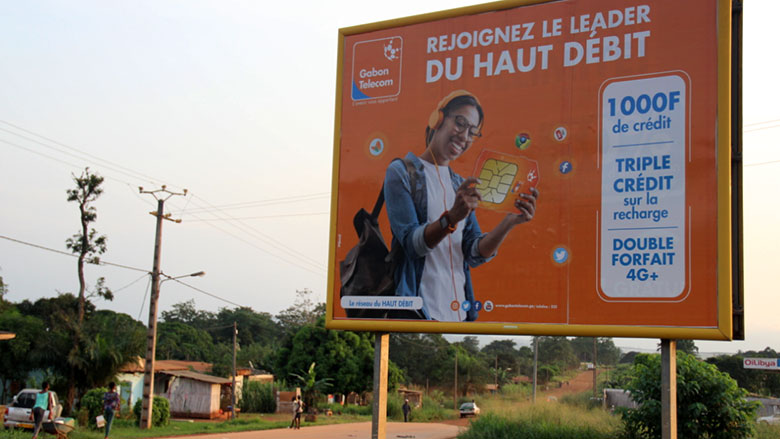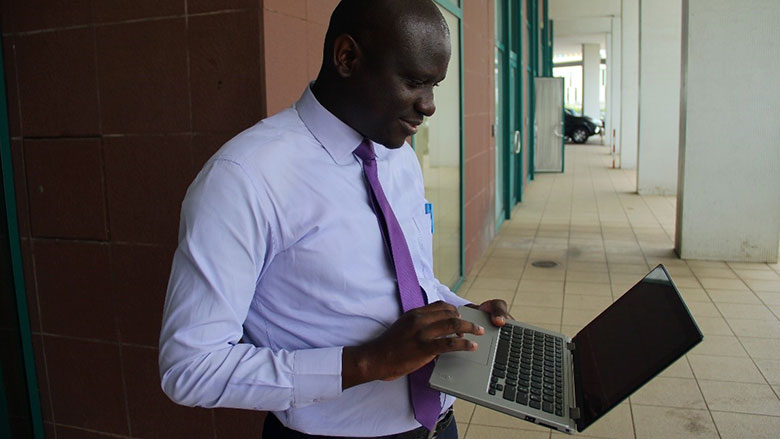LIBREVILLE, June 25, 2018 ‒ It is impossible these days to drive around the cities of Gabon without noticing the large billboards promoting internet access at rates that were unimaginable only a few years ago.
This is a wonderful development for Alphonse, a young, 34-year old public-sector professional. WhatsApp, Facebook, LinkedIn and Instagram are all applications that this ultra-connected young man uses on his telephone for both work and pleasure. “With the rise in the number of providers of internet and mobile telephone services, internet subscription rates have fallen considerably and the service provided by Gabon Telecom has greatly improved,” he explains. “I work between Libreville and Port Gentil; thanks to high speed, with just one click I can now complete transactions and administrative formalities that in the past used to take me a ridiculously long time because of how slow and unreliable the network used to be.”
Undeniable advantages
Over the past few years, digital technology has revolutionized a number of areas and information and communication technologies (ICT) have been providing a growing number of solutions to developing countries. By providing people with access to banking, administrative and medical services, they have been particularly effective in helping to reduce distances in some countries.
The internet can also serve as a powerful tool for sensitization and distance learning as well as for the collection of data that are essential for the formulation of development policies. Some countries carry out household polls and surveys using mobile telephony.
Once the network is fast, reliable and economical, then there is no end to the list of possible benefits. This is why Gabon has decided to improve its network coverage and to roll out high-speed fiber optics through the Central African Backbone (CAB) project.


